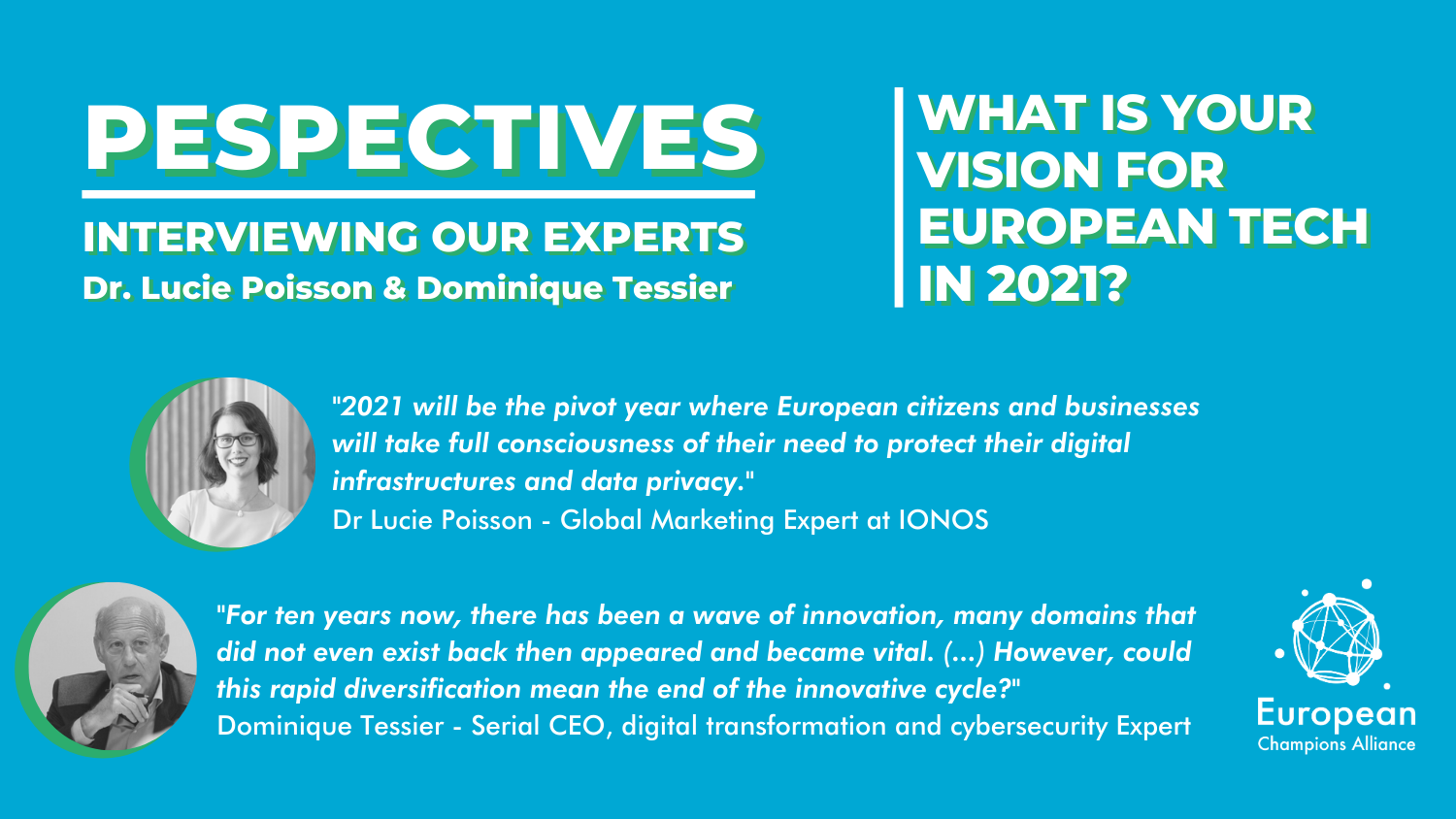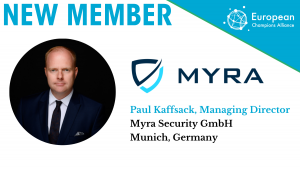I had the privilege to interview two of our expert’s perspectives surrounding the issues of European tech in 2021. We focused our interrogations around European collaboration, their competitors, the consequences of the Covid-19 pandemic among other European issues. I recommend you sincerely to read these interesting perspectives by our experts Dr. Lucie Poisson and Dominique Tessier. Take a look at our panel of experts over here.
Emma Neige – Strategic Partnerships and Communication at the ECA
Dr. Lucie Poisson – Global Marketing Expert at IONOS
I first think that 2021 will be the pivot year where European citizens and businesses will take full consciousness of their need to protect their digital infrastructures and data privacy.
Indeed, as digital usages will continue rising, accelerated by the uncertainties related to the pandemic, people and businesses will be more and more vulnerable in case of cyberattacks. These online threats are constantly increasing, reaching even small companies. This new mindset where my digital usages and identity finally matter to me as a user may be a natural chance for European initiatives and solutions related to security in general.
Secondly, the growing importance of the data privacy topic in Europe, as well as Brexit which makes Europe suddenly smaller but therefore more concrete and nearer, may lead to the emergence of a “European brand”, like France has its French Tech. Tech oriented associations like the European Champions Alliance and ECO in Germany, or initiatives like GAIA-X, definitively go into this promising direction, by promoting, making alive, and connecting our European values.
Dominique Tessier – Serial CEO, digital transformation and cybersecurity Expert
For ten years now, there has been a wave of innovation, many domains that did not even exist back then appeared and became vital. The cybersecurity sector used to be limited to Firewall installation in 2010, since then, between data protection, mobile and mail security or industrial IT, the sector has diversified significantly. However, could this rapid diversification mean the end of the innovative cycle? Or anyhow a downturn compared to the level of the last years? According to our cybersecurity expert Dominique Tessier, it’s time for consolidation to relay vibrant innovation
European tech leaders are full of resources, ideas and talent compared to their global competitors. Nevertheless, there is a drawback in Europe, unsurprisingly linked to a lack of unification of the European market but also because of the absence of the worldwide client culture very specific to the USA.
In regards to the increasing digitalisation, the arrows point in the right direction, despite the relative tardiness of the SMEs in France compared to Germany which has been financing an adapted aid program. But France has heard the wake-up call and a stimulus plan has been initiated this year which indicates some progress. On the other hand, corporate groups have now overpassed the initial burdens of digitalisation that amorced 5 years ago, when so many Pilots were initiated with no clear view of their business goal. We are witnessing a phase of positive transition for the most part.
Unfortunately, the European tech collaboration must intensify radically, it is not a spontaneous reflex yet. Notably because of the different market contexts and certification rules according to the country. Brad Smith, president of Microsoft insisted on the importance of cybersecurity during the CES in Las Vegas in 2020, he claimed that cyber-attacks these days are of a monstrous envergure and we need to move towards a unification of our forces and find diverse solutions. Therefore, an acceleration of the collaboration between national cybersecurity companies is eminently recommended. In 2020, ransomware has increased by 350%, 4 times more. We expect a similar increase in 2021. This means that we are assisting another type of global pandemic.
Ergo, the reflexes that must prevail are solidarity, and Think Big. Corporations must become really serious about Cyberprotection and stop thinking only in terms of costs – as they are bound to lose much more when attacks succeed. Cyber companies must make the grade, not least by behaving a leaders of their ecosystem.
Another major concern for Europe is funding the projects, the tickets are really low and appear to be ridiculous if you compare them to other countries that are much more appealing.





